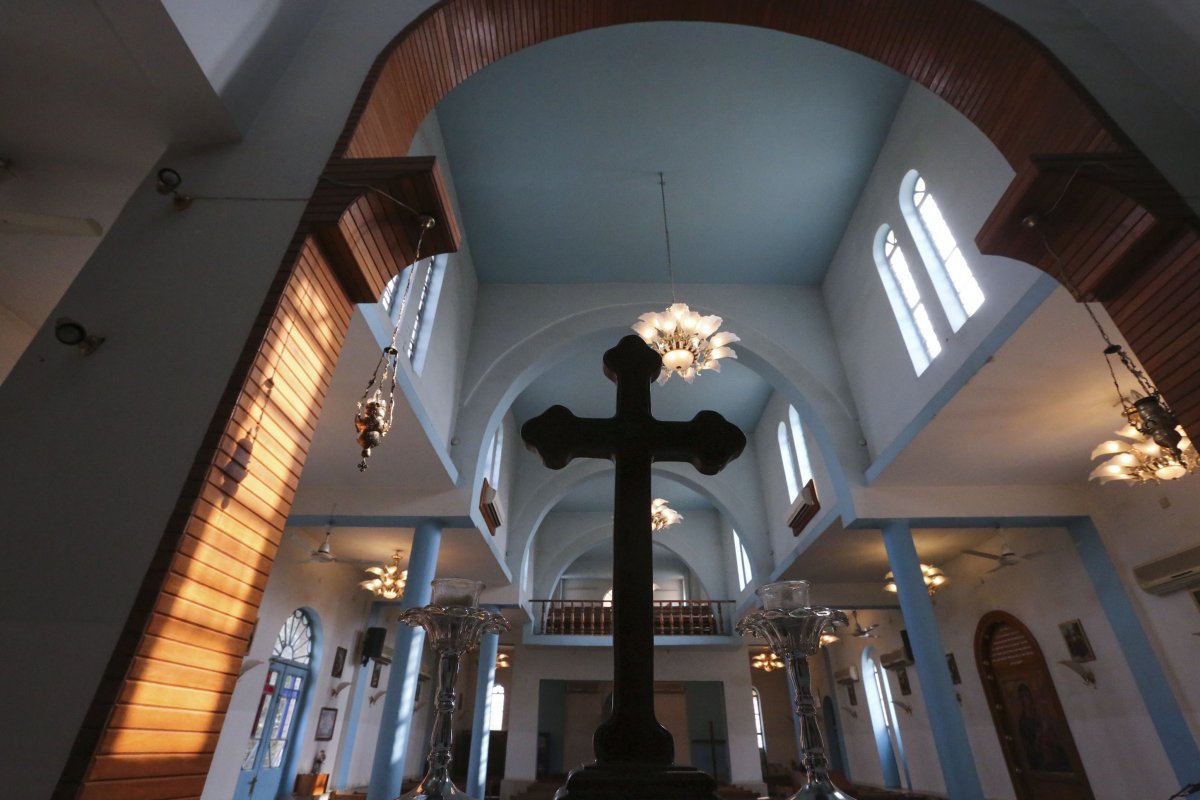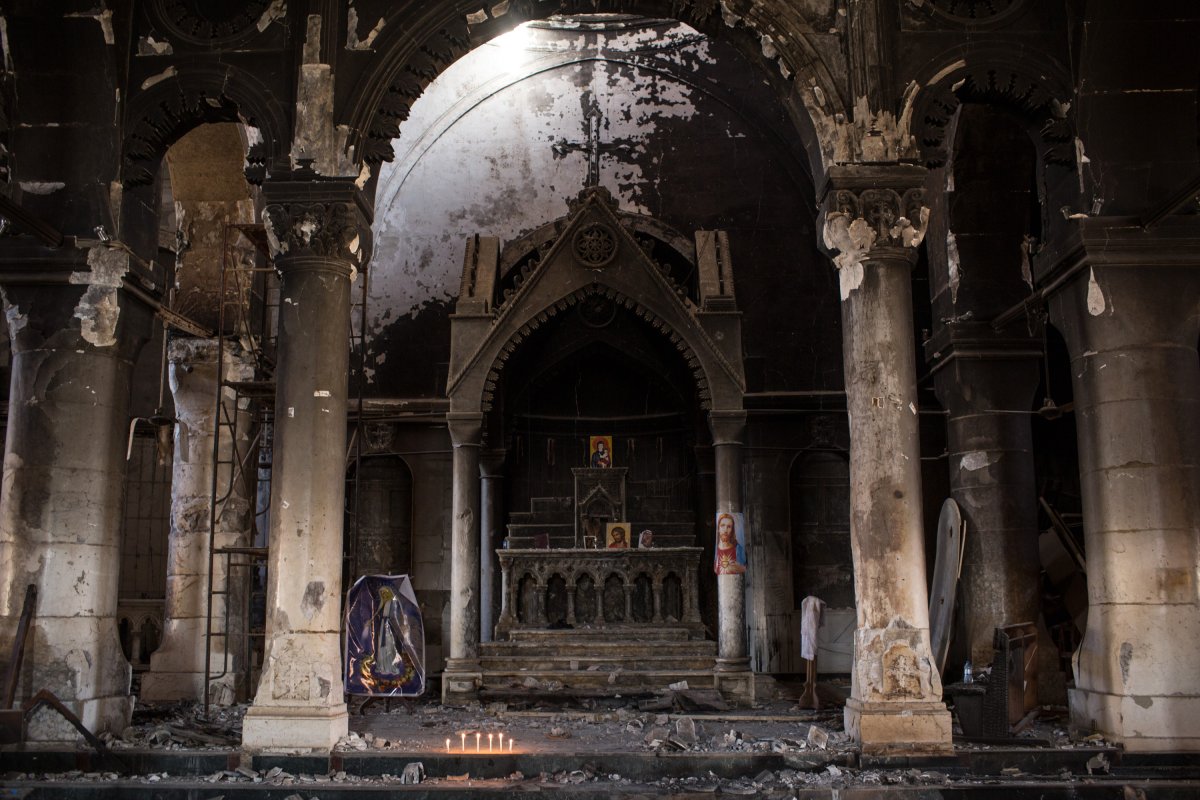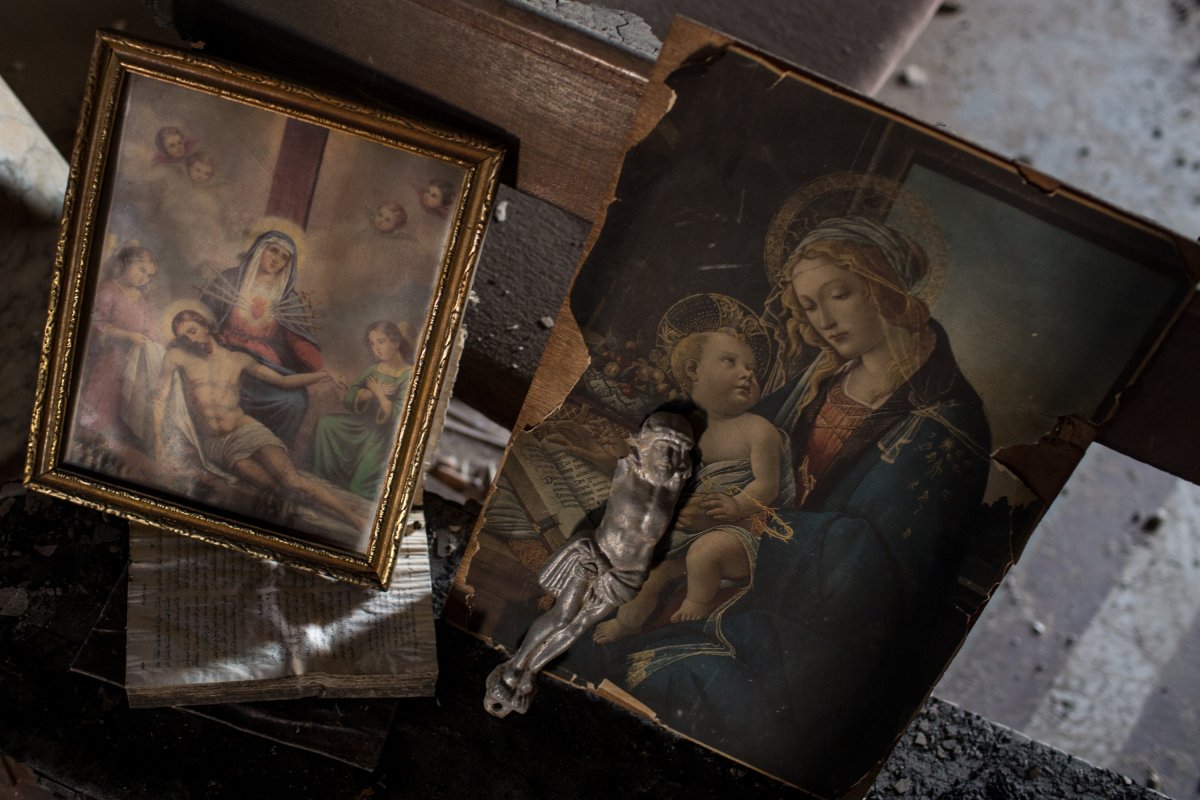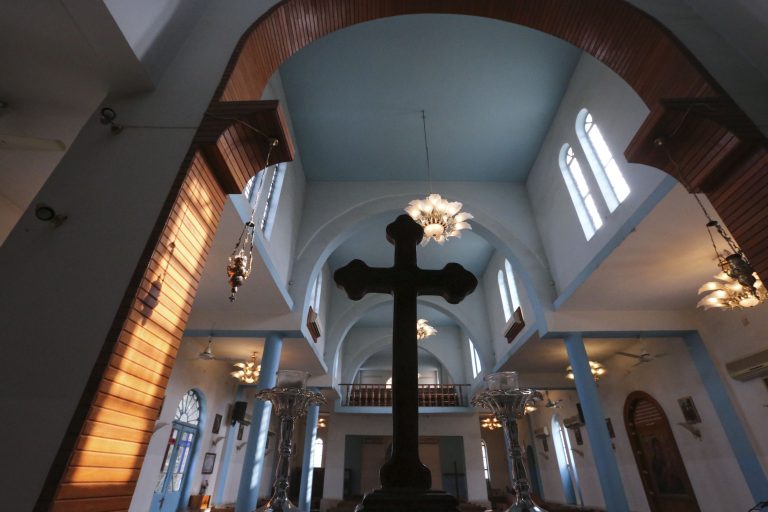Last year marked two decades since the illegal invasion of Iraq and the overthrow of dictator Saddam Hussein’s regime. It was a war that forever changed not only Iraq but the entire Middle East. Eight years after the start of the Iraq War, neighboring Syria was gripped by a painful internal conflict and an international proxy war. The number of Christians in both countries has declined significantly since 2003.
Christians in Iraq today number around 120,000, according to the US Department of State– a huge drop in two decades from 1.2 million. Their population is expected to decline further. In Syria, the Christian population has been reduced to 300,000 people. Before 2011, 1.5 million Christians lived there, according to several human rights organizations. Most Christians in these countries are of Assyrian/Syriac/Chaldean and Armenian origin. The decline of these Christian populations is due to religious persecution by terrorists.
In the summer of 2014, after covering the wars in Iraq and Syria, I realized that journalism alone was not enough to draw attention to the plight of Christians and other religious minorities. Several terrorist organizations had come together to form one of the most dangerous and powerful units ever created: the Islamic State of Iraq and Syria, also known as ISIS. But virtually none of the major media, neither the US government nor the The United Nationswanted to draw attention to religious persecution. My country, Sweden, continued to deport Christian asylum seekers to Iraq, even though the Iraqi government asked them to stop, because their safety could not be guaranteed.
In 2014, it was 10 years since al-Qaeda beheaded Iraq’s first Christian on camera, a young man named Raymond Shamoun. Video of the atrocity was broadcast across Iraq, to scare Christians into fleeing the country. It worked.

SABAH ARAR/AFP via Getty Images
At that time, I posted on Facebook asking for help in drawing attention to ethno-religious persecution. Within two days, we had launched the A Demand For Action (ADFA) campaign, a network of volunteers across the world working to end the ongoing genocide.
We share articles and posts thousands of times a day, on Facebook, TwitterAnd Instagram. We helped bring tens of thousands of people to protests in cities like Los Angeles, Chicago, Sydney and Berlin. We have attracted the attention of politicians, media and celebrities. We had all the documentation, all the facts and all the sources needed. From now on, politicians and the media can no longer remain silent.
Unfortunately, we failed to stop the genocide. But the victims had their say. ADFA is now an established human rights and aid organization.
In December 2022, the UN recognized that the Islamic State had committed war crimes and crimes against humanity against Christians in Iraq. Behind the words, the numbers, the varied reports and the decisions on the name of the violence are the people affected by the atrocities.

Chris McGrath/Getty Images
At ADFA, we recently decided to interview refugees from Iraq and Syria, forgotten victims of ethnic and religious cleansing, living in Beirut.
Our report, The elephant in the room: the forgotten plight of Christians in Iraq and Syria, was produced by Lebanese artist and television presenter Layal Nehme. We visited many Assyrians/Chaldeans/Syriaces and Armenians in the Lebanese capital. In the report, we asked why Christians continue to flee their countries even though terrorist organizations such as ISIS have been defeated.
One refugee, Raghad Abdallah Matti, said he could not afford the ransom demanded by the terrorists for his brother. Both of his parents died of grief a few months after the kidnapping. Raghad’s brother has been missing since 2014.

Chris McGrath/Getty Images
In Lebanon, Raghad does not have the right to work or health care, and his children do not have the right to education. He, like everyone else, is left to his own devices. Completely forgotten. ADFA’s proposal and demand is that those who wish to return to their country of origin have the opportunity to do so. They must feel safe.
Refugees in Lebanon and other neighboring countries, such as Jordan and Turkey, need financial assistance. They must be able to buy food and receive medical care. Those who wish and have applied to settle in Western countries, such as Australia, Canada or somewhere in Europe, should be given priority in the asylum system.
Shiite and Sunni Muslims are hardest hit by the wars in Iraq and Syria. But indigenous peoples such as Assyrians/Syriaces/Chaldeans, Armenians and Yazidis are under threat of ethno-religious cleansing. We would have preferred to see them return safely to their country of origin. But the vast majority of them refuse to do so for fear of persecution, as our report highlights. report.
The international community must not forget these victims of ethno-religious cleansing. Their continued suffering, as survivors of crimes against humanity, demonstrates the failure of the international community as a whole. By writing the report and participating in the International Summit on Religious Freedom in Washington, DC, January 30-31we hope for real change.
Raymond Shamoun must find his voice. His brutal assassination and the consequences of the violence that followed must not be forgotten. The Christians of Iraq and Syria are not new. They are human beings. Human rights organizations, politicians and all those who fight against any form of religious persecution must always remember and take this into account.
Nuri Kino is a multi-award-winning independent investigative journalist and expert on minority rights.
The opinions expressed in this article are those of the author.
Uncommon knowledge
Newsweek is committed to challenging conventional wisdom and finding connections in the search for common ground.
Newsweek is committed to challenging conventional wisdom and finding connections in the search for common ground.


